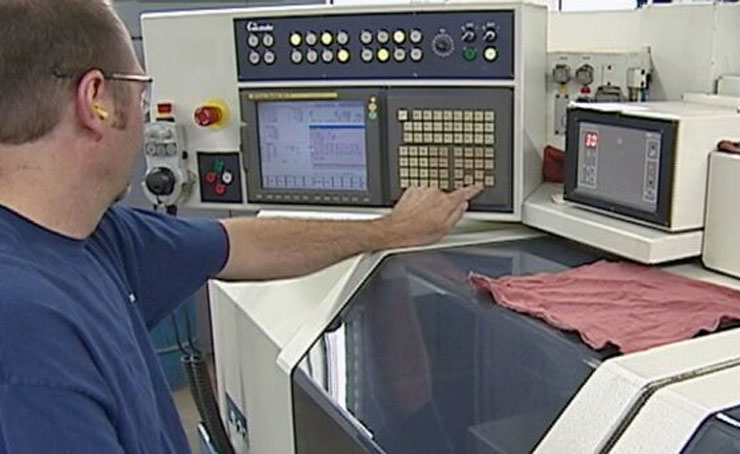Be a Blog Subscriber
Join thousands of manufacturing leaders and professionals who get the Accelerate blog delivered straight to their inbox

 Does our company need a Computer Numerical Control (CNC) machinist training program? It’s a question facing many manufacturers as they confront a shortage of skilled CNC operators — along with a lack of experienced job candidates. According to the Tooling U-SME Industry Pulse: Manufacturing Workforce Report, approximately two-thirds (59%) of manufacturers are currently looking to hire CNC machinists.
Does our company need a Computer Numerical Control (CNC) machinist training program? It’s a question facing many manufacturers as they confront a shortage of skilled CNC operators — along with a lack of experienced job candidates. According to the Tooling U-SME Industry Pulse: Manufacturing Workforce Report, approximately two-thirds (59%) of manufacturers are currently looking to hire CNC machinists.
The good news is one of the top-ranked Google searches related to manufacturing is “How to Become a CNC Machinist.” So, there is significant interest in pursuing CNC machining as a career. Because knowledgeable CNC machinists are also in high demand, the trend gives hope to manufacturers who are desperately seeking employees with CNC machinist skills.
But does that mean investing in a company CNC machinist training program is worth it? For many manufacturers who develop and promote a CNC machinist training program, the answer is yes — if you take the right approach. Here are some ways CNC training gives companies a competitive advantage by attracting and building a strong machining workforce.
There are multiple ways to implement a CNC machinist training program. For Midmark Corp., a global manufacturer and supplier of healthcare products, equipment and diagnostic software, the goal of the program was to train incumbent workers — specifically in CNC machining skills.
But the Dayton, Ohio-based manufacturer was worried about the impact of training on ongoing production, the time constraints, and ultimately, cost. Midmark also needed training for a variety of workers at different skill levels, from entry-level to more experienced operators with many years on the job.
Together with Edison State Community College — a half-hour drive from Midmark in Piqua, Ohio — Tooling U-SME built Midmark a customized CNC machinist training program.
The solution was to allocate four workers per session over six months to minimize production downtime for Midmark. Employees completing the course were awarded seven credit hours at Edison Community College along with Tooling U-SME certificates of completion.
In the end, Midmark’s training program saved the company over half of its anticipated investment by cutting operator training time from 12 to six months. More than 30 employees completed the program over five years, enhancing the skills of CNC machinists at all experience levels.
It’s never too early to start building a pipeline of future workers. Developing relationships with local schools can be a direct line to your company’s future CNC machinists — and it can help you manage the cost of CNC machinist training.
Tooling U-SME provides educators with the same competency-based learning that is used in many manufacturing companies nationwide, so students can achieve dual credit with their high school and community college. This creates a shorter pathway to a career as a professional CNC machinist.
Recently, one of our SME PRIME schools, Hawthorne High School (located in greater Los Angeles), celebrated the graduation of students from South Bay Workforce Investment Board’s Aero-Flex Pre-Apprenticeship program, which includes CNC machining training. The students earned certificates of completion, received a $500 stipend and were highly marketable upon graduation.
The “earn and learn” model is one successful way to close the talent gap in CNC machining. Pre-apprenticeship and apprenticeship programs build awareness of the opportunity within the manufacturing industry and teach valuable on-the-job skills. Additionally, many of these programs are supported by the U.S. Department of Labor and through local grants.
Along with creating competency-based apprenticeships, other proven strategies that enhance a workforce development program for CNC machinists include building a strong learning culture and awarding bonuses for successful machining course completion. Tooling U-SME’s Machining Turnkey Training, which provides a “quick-start” option for employers, is also a convenient starting point when creating a brand new training program.
Building effective CNC machinist training programs is a win for workers and manufacturers. By investing in your incumbent employees as well as future CNC machinists, your company is not only developing a thriving workforce. It is also providing an answer for the many job seekers who are asking, “How do I become a CNC machinist?”
Join thousands of manufacturing leaders and professionals who get the Accelerate blog delivered straight to their inbox